5th Biennial Boston Speech Motor Control Symposium
12th–13th June 2025 — Boston, MA, USA
Conference Timeline
|
About the Conference
The Boston Speech Motor Control Symposium (BSMCS) is a regional conference aimed at providing an accessible and inclusive environment for those near the Boston area to share research involving speech motor control. We also welcome people from outside the greater Boston area—join us for the two-day event, or make a plan for a summer vacation in Boston! We hope BSMCS will be a great opportunity to bring together students, researchers, and clinicians from the numerous subfields within speech motor control to ultimately highlight new research within these areas, generate new ideas, and foster faster clinical translation of important findings. |
Invited Speakers
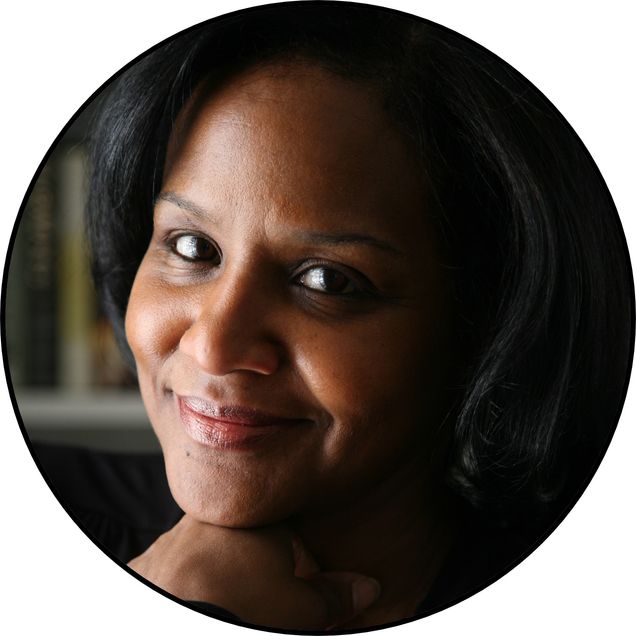 |
Keynote Speaker: Carol Espy-Wilson, PhD Professor, Electrical and Computer Engineering at the University of Maryland, College Park Dr. Carol Yvonne Espy-Wilson is a distinguished electrical engineer and professor in the Department of Electrical and Computer Engineering at the University of Maryland at College Park, where she was the first African-American to achieve tenure and full professorship. She earned her Ph.D. in Electrical Engineering from MIT, becoming the first African-American woman to do so, after completing her B.S. in Electrical Engineering at Stanford. Her expertise spans signal processing, machine learning, and speech acoustics, with a focus on improving speech recognition by integrating articulatory and phonetic features. Dr. Espy-Wilson’s research includes developing a speech inversion system with applications in detecting and monitoring mental health conditions like depression and schizophrenia. She is a fellow of several prestigious organizations, including the Acoustical Society of America and IEEE, and has received numerous awards for her contributions to the field. Additionally, she founded OmniSpeech, a company that produces AI-powered speech processing software, which has garnered multiple awards and NSF grants. |
| Invited Speaker: Panying Rong, PhD Associate Professor, Department of Speech-Language-Hearing: Sciences & Disorders at the University of Kansas Dr. Panying Rong is an associate professor in the Department of Speech-Language-Hearing at the University of Kansas. Her interdisciplinary research program focuses on integrating precision medicine and computational approaches to enhance the understanding and individualized care of progressive neuromotor speech disorders. To achieve these goals, her research team has developed and tested a variety of automated computational tools for objective assessment, monitoring, prognosis, phenotyping, and tailored management of motor speech disorders secondary to neurodegenerative conditions such as ALS and Parkinson’s disease. In addition, she is also interested in applying multimodal measurement techniques (e.g., facial surface electromyography, kinematic tracking, acoustic) for identifying novel subclinical markers to improve the screening and early detection of communication disorders in asymptomatic individuals at risk for developing neurodegenerative diseases such as Alzheimer’s disease. She has published across disciplines, including communication science and disorders, neurophysiology, and neurology. |
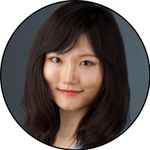 |
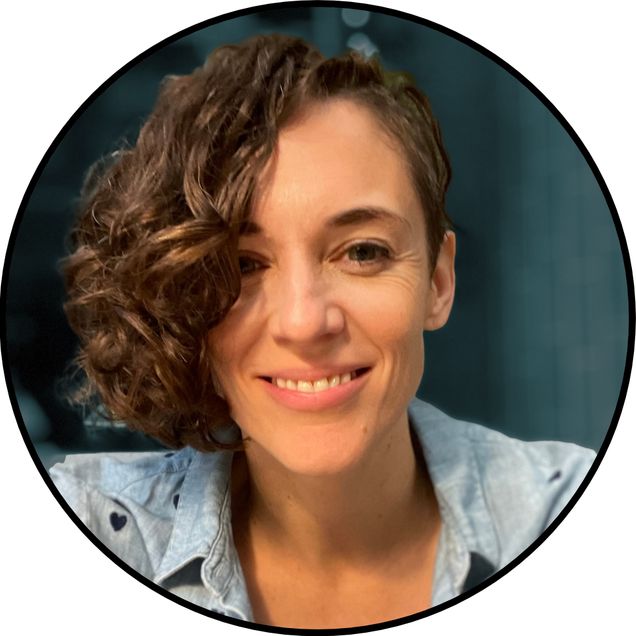 |
Invited Speaker: Kimberly Dahl, PhD, CCC-SLP Post-doctoral Fellow, Department of Speech, Language, & Hearing Disorders at Boston University Dr. Kimberly Dahl (she/her) is a postdoctoral fellow in the Department of Speech, Language, and Hearing Sciences at Boston University. She researches speech motor learning in the context of multi-participant, dynamic interactions. Her work recognizes the considerable influence listeners have over speaker behavior and aims to understand how that influence affects articulatory and prosodic control in speakers with motor speech disorders. |
| Invited Speaker: Alan Bush, PhD Co-Director, Brain Modulation Lab, Department of Neurosurgery, Massachusetts General Hospital Dr. Alan Bush studies the electrophysiology of the basal ganglia, the pathophysiology of movement disorders, and the mechanism of action of neuromodulation therapies like Deep Brain Stimulation (DBS). Through his work at the Brain Modulation Lab, he leverages the unique access to the human basal ganglia provided by DBS implantation surgery to explore the role of these structures in speech perception and production, aiming to optimize DBS therapy for improved speech outcomes. |
 |
 |
Invited Speaker: Jason Whitfield, PhD, CCC-SLP Associate Professor, Department of Communication Sciences and Disorders at Bowling Green State University Dr. Jason Whitfield is a faculty member in the Department of Communication Sciences and Disorders at Bowling Green State University (BGSU), where he conducts research on interactions between speech production and goal-directed attentional control. He values collaborating with internal and extramural colleagues and students at all levels, from undergraduates to doctoral trainees. Much of his research has examined how cognitive-linguistic factors interact with goal-directed and habitual speech motor control in talkers with and without Parkinson disease.Since 2021, Whitfield has served as the Diversity and Inclusion Faculty Facilitator in the College of Health and Human Services at BGSU. He is developing an emerging area of scholarly work focused on patterns of inequality and structural racism in higher education, including health and human service programs and speech-language pathology. He serves in other professional roles, including as the editor for Perspectives of the ASHA Special Interest Groups – SIG 19: Speech Science, an editorial board member of the Speech section of Journal of Speech, Language, and Hearing Research and the Speech and Language section of Frontiers in Human Neuroscience, and as a member of the Justice, Equity, Diversity, and Inclusion Committee for the Association of Schools Advancing Health Professions. |
| Invited Speaker: Gemma Moya-Galé, PhD, CCC-SLP Assistant Professor, Department of Communication Sciences and Disorders at Columbia University Dr. Gemma Moya-Galé is an assistantprofessor of Communication Sciences and Disorders at Teachers College, Columbia University. Her primary interests focus on the development of novel treatment approaches, using automatic speech recognition, to improve communication and quality of life in individuals with Parkinson’s disease (PD). Additionally, her clinical research aims at the inclusion and empowerment of underrepresented populations with PD, such as Hispanic/Latinx/Latiné, and her community outreach strives to maximize resources and services that are linguistically and culturally responsive for this population. She directs the Communication, Technology, and Language Diversity Lab, as well as Speech for PD, a university and community-based group speech rehabilitation program for individuals with PD. |
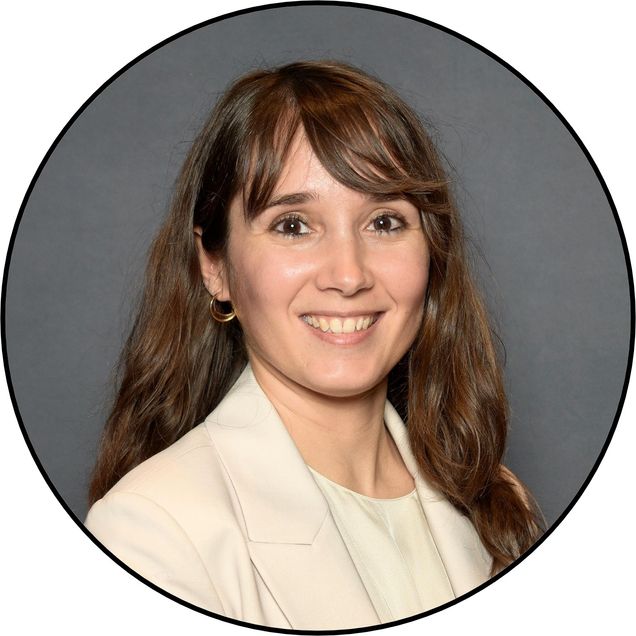 |
Registration
BSMCS’25 will be a hybrid event. Scheduled talks will take place in person and will be simultaneously broadcast to a virtual audience to maximize research dissemination. Concurrent virtual and in-person activities are planned, including a poster session and breakout rooms for networking. Registration is available until May 30, or until the conference venue reaches capacity (whichever comes first). All refunds will be processed three weeks prior to the symposium date and will subtract 20% of the registration cost for the administration fee. Questions regarding registration should be directed to the BSMCS organizing committee (bsmcs@bu.edu).
| In-Person Admission | Virtual Admission | |||||
| General | 120 USD | General | 30 USD | |||
| Trainee* | 50 USD | Trainee* | 10 USD | |||
*A “trainee” refers to undergraduate students, graduate students (including doctoral candidates), and post-doctoral scholars.
Registration is now closed!
Conference Schedule
| Tuesday, June 10th | Thursday, June 12th | Friday, June 13th | ||
| Pre-conference Virtual Poster Session 3:00 PM – 6:00 PM |
Registration From 8:00 AM onward |
Registration From 8:00 AM onward |
||
| Conference Opening 8:30 AM – 8:35 AM |
Conference Opening 8:30 AM – 8:35 AM |
|||
| Podium Session 1 8:35 AM – 9:35 AM |
Podium Session 4 8:35 AM – 10:25 AM |
|||
| Break | Break | |||
| Podium Session 2 9:45 AM – 10:45 AM |
Podium Session 5 10:35 AM – 11:50 AM |
|||
| Break | Break | |||
| Trainee Networking Event (more details to come) 10:45 AM – 12:25 PM |
Keynote Address: Carol Espy-Wilson 12:00 PM – 1:00 PM |
|||
| Lunch | Lunch | |||
| Podium Session 3 2:00 PM – 3:00 PM |
Podium Session 6 2:30 PM – 4:10 PM |
|||
| Roundtable Discussions 3:00 PM – 4:30 PM |
Poster Sessions 2–3 & Reception Session 2: 4:10 PM – 4:55 PM Session 3: 4:55 PM – 5:40 PM |
|||
| Poster Session 1 & Reception 4:30 PM – 5:30 PM |
||||
| Closing Remarks & Poster Awards until 6 PM |
Click Here to Download the Full Program
Information for Presenters
Podium Presentations (15 minutes + 5 minutes for Q&A):
Presentations must be emailed to bsmcs@bu.edu at least one week before the conference. Before submitting, be sure to test your slides—including any audio or video—to ensure smooth playback. Please note:
-
Personal computers may not be used for presenting.
-
Bring a backup of your presentation on a USB drive to the conference.
Poster Presentations:
-
Posters must be no larger than 36″ wide by 42″ tall (portrait orientation only).
-
To be considered for a poster award, please email a PDF of your poster to bsmcs@bu.edu by 9:00 AM on Monday, June 9, 2025.
Venue & Area Information
BSMCS’25 will be held between the Rajen Kilachand Center for Integrated Life Sciences & Engineering (CILSE) and WBUR’s CitySpace venue, both of which are located in the vibrant hub that is the Charles River Campus of Boston University. CILSE is home to state-of-the-art laboratories spanning disciplines such as biology, chemistry, and engineering. CitySpace is a LEED Gold Certified venue that has sustainability central to every feature and is home to WBUR’s Live Journalism. Both venues are across the street from Boston public transit (MBTA) and situated in close proximity to several parking garages for easy building access. The official addresses of the venues are:
| 12th June 2025
Rajen Kilachand Center for Integrated Life Sciences & Engineering |
13th June 2025
WBUR CitySpace |
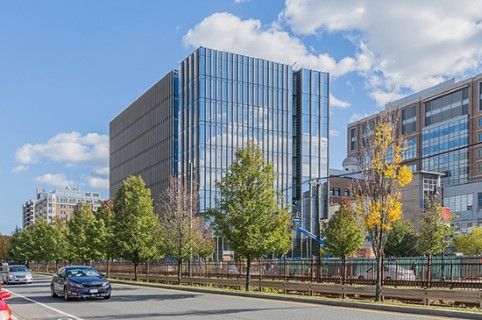 |
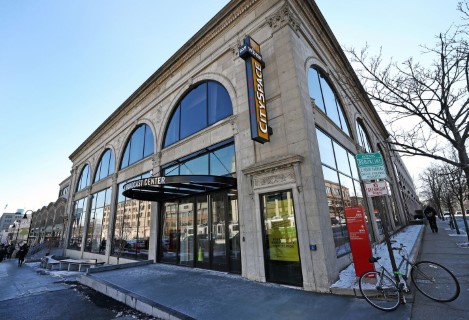 |
Commuting to BSMCS
BSMCS locations are all easily accessible from the Green Line B, C, and D trains via Kenmore station. Several Boston University parking lots as well as street parking options are available for those choosing to drive.
Public Transportation:
- Metro/Train: Visit BU’s list of MBTA commuting options
- Flights: Boston is served by Boston Logan International Airport
- Biking: Boston’s bike share system (Blue Bikes) offers six convenient stations installed around the Charles River Campus
- Taxi/Car Service: Visit the Boston Police Department to view a list of authorized taxi cab associations in Boston
- For more information about the local bus or subway services, visit the Massachusetts Bay Transit Authority
Driving:
- Directions: Driving directions to Boston University Charles River Campus
- Parking: Overview of available guest/visitor parking lots
Hotels: There are plenty of options for accommodations within the Boston area. Below are options of varying distance from symposium venue as well as commute time for multiple modes of transportation (including walking-Boston is a very walkable city!).
| Hotel | via MBTA (train or bus) | via Walking | via Uber/Lyft |
| Courtyard Boston Brookline | ~20 min (Green Line C to Kenmore) | ~32 min to CILSE
~20 min to CitySpace |
~9 min to CILSE
~7 min to CitySpace |
| The Arcadian | ~19 min (Green Line C to Kenmore) | ~24 min to CILSE
~11 min to CitySpace |
~6 min to CILSE
~3 min to CitySpace |
| Hyatt Regency Boston/Cambridge | ~25 min (18 min walk, 5 min Green Line B to Blandford St.) to CILSE | ~22 min to CILSE
~25 min to CitySpace |
~8 min to CILSE
~21 min to CitySpace |
| Hotel Commonwealth | ~6 min bus (57 to Commonwealth Ave @ Buick St.) or ~10 min train (Green Line B to Amory St.) to CitySpace | ~5-10 min to CILSE
~25 min to CitySpace |
~3 min to CILSE
~7 min to CitySpace |
| The Verb | ~18 min train (10 min walk, 8 min Green Line B to Amory St.) to CitySpace | ~5-10 min to CILSE
~26 min to CitySpace |
~5 min to CILSE
~8 min to CitySpace |
| Residence Inn | ~17 min train (10 min walk, 7 min train Green Line B to Amory) to CitySpace | ~5-10 min to CILSE
~23 min to CitySpace |
~5 min to CILSE
~7 min to CitySpace |
| Boston Park Plaza | ~17 min train (Green Line B to Blandford St.) or ~20 min train (Green Line C or D to Kenmore) to CILSE
~20 min train (Green Line B to Amory St.) to CitySpace |
~41 min to CILSE
~1 hr to CitySpace
|
~15 min to CILSE
~14 min to CitySpace |
| AC Hotel Cleveland Circle | ~30 min train (5 min walk, 20 min train Green Line C to Kenmore; 5 min walk, 15 min train Green Line D to Kenmore; 8 min walk, 20 min train Green Line B to Blandford St.) to CILSE
~30 min train (8 min walk, 20 min train Green Line B to Amory St.) to CitySpace |
~1 hr to CILSE
~1 hr to CitySpace |
~15 min to CILSE
~12 min to CitySpace |
BSMCS Inclusion Policy
The Boston Speech Motor Control Symposium strives to be an inclusive event for all, regardless of race, gender, sexual orientation, or physical ability. If you have any comments or concerns throughout the symposium, please contact us at bsmcs@bu.edu.
Organization & Contact
Program & Organizing Committee:
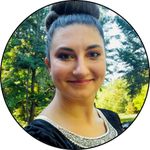 |
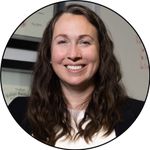 |
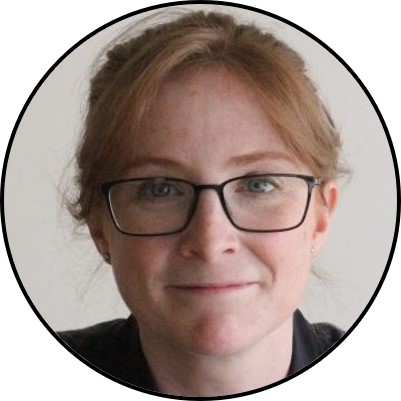 |
 |
 |
 |
 |
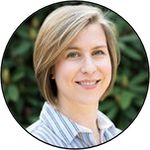 |
| Jenny Vojtech | Cara Stepp | Emily Stephen | Frank Guenther | Daphne Toglia | Brittany Fletcher | AnnaKate Spotts | Mara Kapsner-Smith |
Questions? Feel free to contact us at bsmcs@bu.edu with any inquiries.
Disclosures
Learning Objectives
As a result of attending this symposium, participants will be able to:
- List current questions in speech motor control.
- Identify the role and impact of sensorimotor impairment in a variety of acquired and developmental communication disorders.
- Describe factors that influence sensorimotor control and learning in speech.

This course is available for partial credit. To successfully complete this course, at the end of the symposium, attendees must submit a course completion form documenting which presentations they attended, their course evaluation, and their intent to change statement.
Sponsors
 |
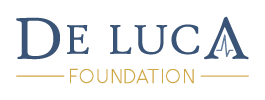 |
 |